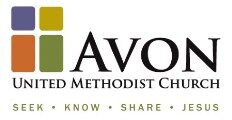Your Faith Journey 104
Read more...
Your Faith Journey 103
The apostle Paul shared a list of virtues in Colossians 3 to encourage Christians to become more like Christ. Paul described them in this way, “clothe yourselves with compassion, kindness, humility, gentleness and patience. Bear with each other and forgive one another…And over all these virtues put on love, which binds them all together in perfect unity” (Colossians 3:12-14 NIV). Imagine if we, the people of Avon UMC, clothe ourselves daily with virtues that enable us to become more and more like Jesus. Perhaps we will see Jesus more clearly within each other, and our community will encounter Christ to a greater degree, if the virtues of Christ are seen, heard, and experienced in and through Avon UMC.
As you read the suggested scripture each day, look for the following virtues:
Centering on God
Christ-like Love
Forgiveness
Joy
Humility
Kindness
Patience
Read more...
Your Faith Journey 102
In Matthew 25, Jesus shares a story about a man who entrusts his wealth to his servants for them to manage according to his desires, not their own. They don’t own the money they have been given, their master owns it. The parable reveals that God entrusts us with time, talents, and resources. We don’t own what we’ve been given by God. It belongs to him. But we are responsible for managing it according to how he commands us. Are you using your God-given time, talents, and treasures, according to God’s will? Are you investing what you’ve been given so that our “Master” will receive a return on his investment?
Read more...
Your Faith Journey 101
Read more...
Your Faith Journey 100
Read more...
Your Faith Journey 99
Read more...
Your Faith Journey 98
Read more...
Your Faith Journey 97
Read more...
Your Faith Journey 96
Read more...
Your Faith Journey 95
Read more...
